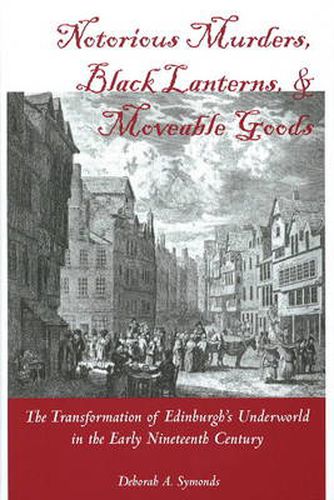Readings Newsletter
Become a Readings Member to make your shopping experience even easier.
Sign in or sign up for free!
You’re not far away from qualifying for FREE standard shipping within Australia
You’ve qualified for FREE standard shipping within Australia
The cart is loading…






1828: The year when William Burke, and Willian Hare, and their wives murdered nearly a score of Edinburgh’s poor and sold their bodies offers us many more examples of entrepreneurial criminals in Edinburgh’s Old Town. Young thieves ransacked a warehouse for tea, women pretending to be prostitutes lifted gentlemen’s watches, and the fine linens disappeared from washerwomen’s houses. What Symonds reveals here is a shadow economy where the most numerous of all criminals, thieves, practice their trade not out of poverty and misery, but because it is their trade. Symonds argues that the trade thievery, far from being either static, or a symptom of misery and sign of revolt, was a very lively economic sector, the freest market of all, and one that shifted and shadowed the larger legitimate economy. The community of labourers and petty fiddles, especially of visitors like drovers, might be tolerated, if done cleverly, but murder and theft, especially from local business, was more unsettling. But the entrepreneurial spirit was never more alive, or perhaps more valued, because it could easily substitute for capital in the shadow economy.
$9.00 standard shipping within Australia
FREE standard shipping within Australia for orders over $100.00
Express & International shipping calculated at checkout
1828: The year when William Burke, and Willian Hare, and their wives murdered nearly a score of Edinburgh’s poor and sold their bodies offers us many more examples of entrepreneurial criminals in Edinburgh’s Old Town. Young thieves ransacked a warehouse for tea, women pretending to be prostitutes lifted gentlemen’s watches, and the fine linens disappeared from washerwomen’s houses. What Symonds reveals here is a shadow economy where the most numerous of all criminals, thieves, practice their trade not out of poverty and misery, but because it is their trade. Symonds argues that the trade thievery, far from being either static, or a symptom of misery and sign of revolt, was a very lively economic sector, the freest market of all, and one that shifted and shadowed the larger legitimate economy. The community of labourers and petty fiddles, especially of visitors like drovers, might be tolerated, if done cleverly, but murder and theft, especially from local business, was more unsettling. But the entrepreneurial spirit was never more alive, or perhaps more valued, because it could easily substitute for capital in the shadow economy.